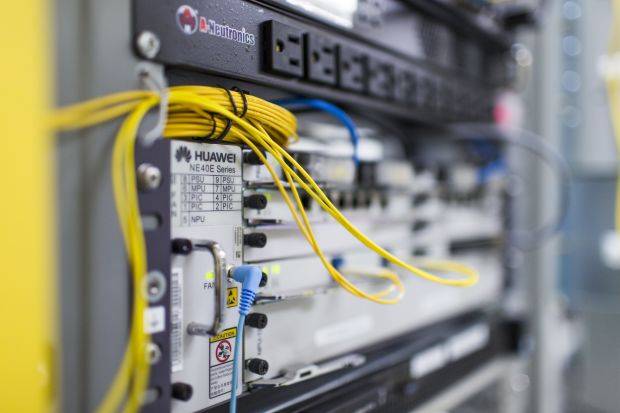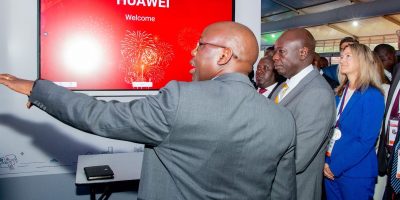Huawei the world’s biggest producer of telecom equipment, ranking second in global smartphone sales, behind Samsung and ahead of Apple has for the past days been in the middle of the escalating trade war between the U.S. and China.
At the wake of this week, Huawei’s smartphone business was slapped with a ban barring it from accessing updates & usage for Google’s Android operating system. Although the ban wasn’t immediately brought to book, the newer smartphone versions from Huawei won’t be able to use the Operating system anymore or at least for now.
The ban comes after Google complied with the trump administration’s directive to blacklist Huawei and 70 affiliates to the U.S. Commerce Department’s Entity List & restrict the companies from buying parts and components from U.S. companies without government approval. Although America thinks Huawei is one of the greatest security risks, the ban has also been greatly influenced by the increasing collusion of business and politics over the technological domination of the world — China and the U.S. want a large piece of that cake!
Where it all started….


Huawei’s woes didn’t simply start overnight, A few months ago, a report, prepared for the National Security Advisor of the U.K. by the Huawei Cyber Security Evaluation Centre (HCSEC) noted with concern major “significant technical issues” which it says lead to new risks for U.K. telecommunications networks using Huawei kit.
Tech Crunch reported that; “Last year, under pressure from U.K. security agencies concerned about technical deficiencies in its products, Huawei pledged to spend $2BN to try to address long-running concerns about its products in the country.”
After it’s increasing issues and concerns, President Donald Trump has since waged a trade war on Chinese companies and has rallied other countries to follow his lead in banning the use of their technology products and services due to “national security threats” linked to their close ties to the Chinese government and Chinese intelligence.
In response, Japan has since excluded Huawei from public procurement, Australia and New Zealand have effectively blocked it too from involvement in the rollout of their 5G network infrastructure and the U.K., Canada, Poland and Germany are also assessing whether to exclude Huawei from forthcoming infrastructure rollouts. The Google plug being the ‘bloodiest’.
“The real objective behind the U.S. going after Huawei and ZTE may well be economic, to hamstring or cripple potential technology rivals and to prevent them from playing a lead role in the development and implementation of 5G,” says independent analyst Charley Lewis.
The Last Laugh
The ban on Huawei looks terribly big, devastating and frustrating for the second most global smartphone sales and a formidable expansion of tech. Pundits predict that Android pulling the plug on Huawei will harm it while experts predict that China won’t feel the pinch.
After the Chinese smartphone and technology giant was hit hard by the Trump administration in a bid to limit its operation in the U.S., Huawei responded by announcing they had been working on their own OS called HongMeng that would replace Android.
HongMeng OS is expected to be launched later this year or early next year and the ice-breaker is that Android developed applications will be supported, meaning its customers will have a smooth transition away from Android.
At the I/O 2019 developer conference early this month, Google announced that its mobile operating system Android has passed 2.5 billion active devices. This is almost twice China’s population and pulling the plug on Huawei would only make it lose out on a significant share of Android users.


Image Courtesy Android Police
It may significantly take a while for people to easily get adapted to the new Huawei OS as many have been smoothly acquited with the ease of the Android OS. Huawei getting access to most Android apps on it’s OS doesn’t merely guarantee it access to Google services as they’re the big deal. What’s not sure is if the new OS will come with Google services that range from Google security, Gmail et al.
Come to think of it though, the ban move could instead harm Google and will leave South Korean, Taiwanese and Japanese devices as the only users of Android and this could bring about a rapid decline in the economies of scale for Android. Huawei is on pace to overtake Samsung as the global leader in smartphone sales by 2022. In an event that they do so, Android will come back begging because they’ll have the numbers they need.
Time will tell how the Chinese tech giant will play these game of thrones
However, it’s too early to quantify and conclude that the US ban on Huawei will hurt the company’s revenue and share internationally and in a plot twist, the company can be able to make up for the losses accrued by focusing on its home country.
Should Huawei decide to focus on its smartphone business back home in China and other markets such as Asia and Africa (which is always willing to receive them with open arms), they stand a chance to retrieve their threatened market glory and barely scratch the surface of the ground during these times.
If out of fear for suddenly losing access to Android pushes other smartphone companies to create their own or adopt another universal OS, this will mean that only a few percentages of consumers will be using android and this is not sustainable.
This is isn’t about Huawei, It’s a Chine-USA thing and because the power of technology is steadily drawing boundaries of power and dominance, America is not only scared but also unsure of China’s next move.
When you get a minute vote via my poll on twitter
The #HuaweiBan: Who gets the Last Laugh
— Payo (@enywaru) May 24, 2019
I would love to gather as many opinions as possible on the tension between the U.S. and China that has dragged Huawei along. Who will have the last laugh? Do share in the comment section.





Comments